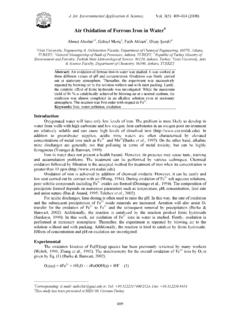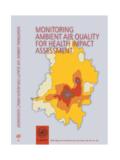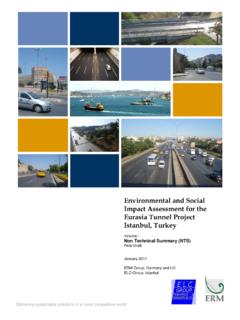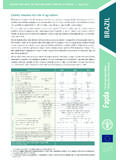Transcription of The New Health PPP Law In Turkey - cakmak.av.tr
1 15 March 2013 The New Health PPP Law In TurkeyIntroductionThe Turkish Health sector has recently undergone major reforms, which were initiated by the adoption of the Health Transformation Program by the ministry of Health ( MoH ) in 2003. The construction and renovation of integrated Health facilities through the public private partnership ( PPP ) model constituted a crucial part of such reform package. Since 2009, the MoH has been conducting tenders and contract negotiations for 18 Health PPP projects with an estimated investment in the amount of approximately USD 5 billion. These projects are currently at different stages varying from pre-qualification to financing. Some of such Health PPP projects have been challenged before the courts by a group of NGOs and individuals.
2 In July 2012, the Turkish Supreme Administrative Court (the Council of State or Dan tay) rendered an injunction relief decision in some of such lawsuits, suspending the implementation of the projects. The Turkish Parliament has recently enacted Law No. 6428 Concerning the Construction of Facilities, Renovation of Existing Facilities and Purchasing Service by the ministry of Health by Public Private Partnership Model1 (the New Law ), effective as of 9 March 2013, with the aim of ensuring continuance of the pending Health PPP projects by remedying the deficiencies determined in the Council of State s July 2012 injunction relief decision mentioned above and amending certain other provisions of the existing legislation to provide further support and stronger legal ground for Health PPP projects.
3 Pursuant to the New Law, the MoH is required to issue a regulation setting forth the principles and procedures of implementation of the New Law within six months from its effective date of 9 March 2013. A. Provisions of the new law which aim to ensure continuance of pending projectsPrior to the enactment of the New Law, the main legislation governing Health PPP projects consisted of Supplemental Article 7 of Health Services Basic Law No. 33592 (the Repealed Law ) and the Regulation Regarding Construction of Health Facilities in Return of Leasing and Renewal of such Facilities in Return of Operation of the Services other than the Medical Services3 (the Repealed Regulation ).1. Commercial Areas Outside the Health Facility CampusFor some Health PPP projects, it was envisaged that certain areas outside the Health facility campus (on which there are currently other Health facilities) would be demolished and allocated to the project company to perform commercial activities.
4 The Council of State has concluded by its July 2012 decision that such allocation was contrary to the then existing legislation and thus suspended the implementation of the relevant tenders. The New Law stipulates that the terms of the tender specifications regarding such allocation will be deemed invalid, and the MoH will proceed with the pending projects without making such allocation. akmak Avukatl k B rosuFor further information please contact:Mehtap Y ld r m zt rkOf Counsel+ 90 312 442 a da Evrim Erg nPartner+ 90 312 442 G kmenAssociate+ 90 312 442 information is provided for your convenience and does not constitute legal advice. It is prepared for the general information of our clients and other interested persons. This should not be acted upon in any specific situation without appropriate legal advice and it may include links to websites other than the website.
5 Akmak Avukatl k B rosu has no responsibility for any websites other than its own and does not endorse the information, content, presentation or accuracy, or make any warranty, express or implied, regarding any other website. This information is protected by copyright and may not be reproduced or translated without the prior written permission of akmak Avukatl k B Published in the Official Gazette No. 28582 dated 9 March Published in the Official Gazette No. 19461 dated 15 May Published in the Official Gazette No. 26236 dated 22 July 2006. 2. Unconstitutionality ClaimThe Council of State stated in its July 2012 decision that the Repealed Law transferred the legislative power of the Parliament to the Council of Ministers by giving it unlimited authority to regulate the details of the Health PPP projects, such as the details of the tender process and scope of the project agreement.
6 The Council of State decided that the unconstitutionality claim regarding the Repealed Law is a serious claim and should be decided upon by the Constitutional Court and therefore sent this claim to the Constitutional Court on 6 July 2012. Accordingly, the New Law also aims to prevent the possible adverse consequences of such unconstitutionality claim on pending projects. Hence, the New Law incorporated most of the provisions which were covered by the Repealed Regulation, such as principles and procedures applicable to the tenders and the scope of the project agreement. B. Provisions of the new law which amend the tender process and the project agreementThe New Law further amends the provisions applicable to the tender process and the project agreement of a Health PPP project as follows: 1.
7 Project Agreementa. Term of the Project AgreementThe term of the project agreement to be signed between the MoH and the project company (a maximum of 49 years under the Repealed Regulation) has been brought down to a maximum of 30 years plus an investment period. b. Payments under the Project AgreementPursuant to the Repealed Regulation, payments under the project agreement were required to be made from the working capital of (a) the related Health facilities or (b) working capital of the Central Accountancy of ministry Working Capital. The Repealed Regulation also provided that payments were under the guarantee of the MoH. Pursuant to the New Law, these amounts shall now be paid from the working capital of the MoH and/or central management budget.
8 The central management budget consists of the budget allocated for MoH pursuant to the Central Budget Law published each year. Therefore, although the MoH guarantee is not explicitly stated in the New Law, payments under the project agreement should be deemed to be subject to the MoH guarantee by virtue of the provisions of the Central Budget Law and general principles of administrative law. The New Law also envisages the possibility of debt assumption by the Treasury, explained in Section Termination of the Project Agreement The Repealed Regulation provided that the MoH could terminate the project agreement if the project company failed to perform its obligations and did not remedy the situation within the grace period provided by the MoH.
9 However, the New Law brings more sophisticated termination provisions which function as follows: Regarding agreements on construction works: should the contractor not fulfill its obligations, the Administration shall provide a reasonable time for remedy and the situation shall be notified by MoH to the lenders providing the financing. During the construction period, should the contractor not fulfill its obligations in the grace period, the MoH and lenders shall be entitled to change the contractor s shareholding structure. If the shareholding structure cannot be changed or the obligations cannot be performed despite such change, the MoH shall terminate the project agreement. During the operation period, should the contractor not fulfill its obligations in the grace period, the services shall then be obtained from third parties by a bargaining method and the service fee shall be deducted from the amount to be paid to the contractor.
10 If Health services are not able to be provided this shall be notified to the contractor as soon as possible and the services shall then be purchased in the name and account of the contractor. The right of the MOH and lenders to change the contractor s shareholding structure shall also be reserved. Regarding agreements on renovation, research/development and consultancy services: should the contractor not fulfill its obligations, the Administration shall provide a reasonable time for remedy. If the contractor does not fulfill its obligations in such grace period, the project agreement shall be terminated. If Health services are not able to be provided the project agreement shall be terminated Debt Assumption by the State TreasuryLaw No.







